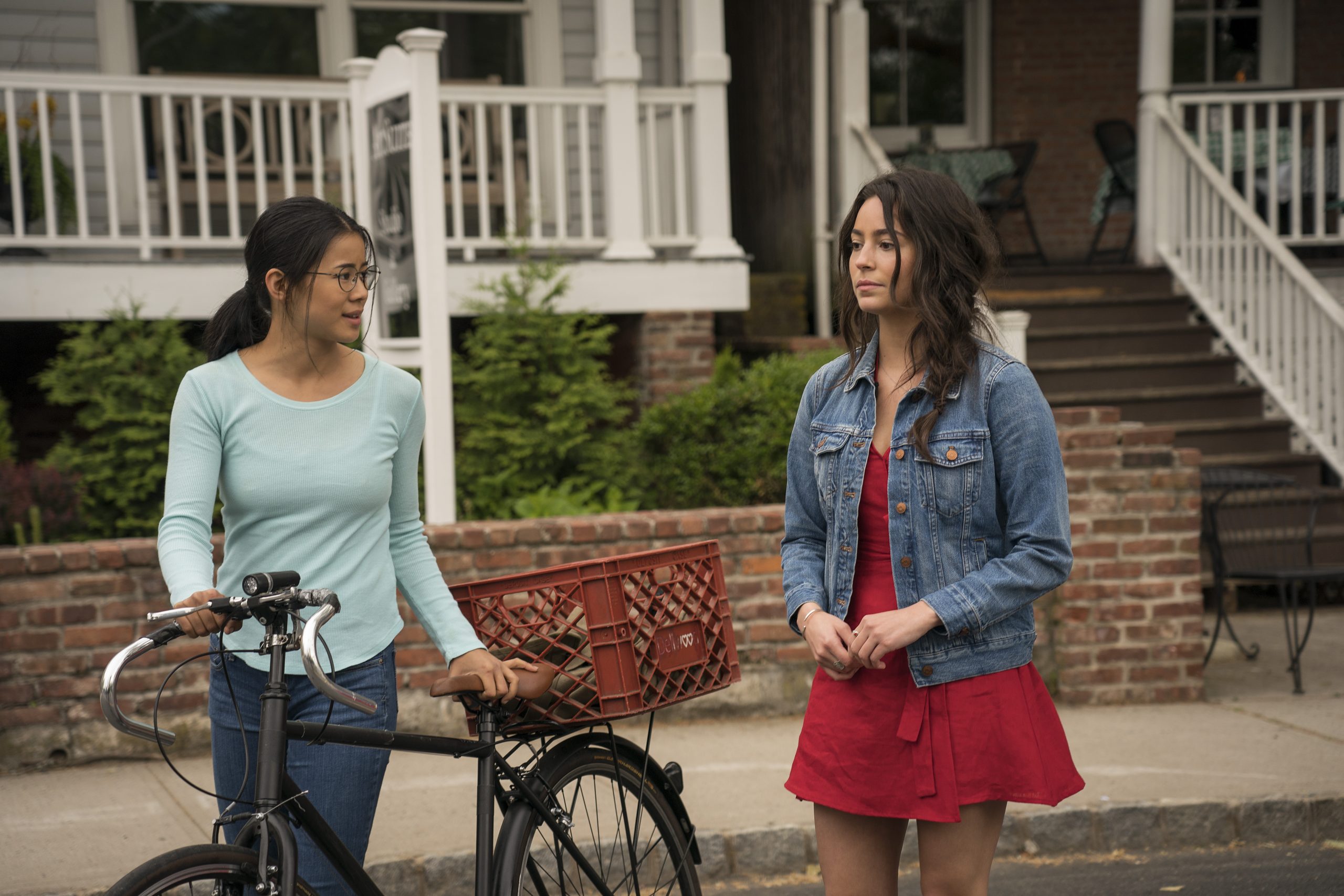When the Academy announced their nominations for the 2021 Oscars, I noticed that one film in particular was missing—Alice Wu’s The Half of It (2020). When Netflix originally released it last May, the film garnered critical acclaim from both critics and audiences, receiving a nomination for the 2021 GLAAD Media Award for Outstanding Film and the Founders Award for Best Narrative Feature from the 2020 Tribeca Film Festival. It’s no mystery why the movie has since become so beloved. From Wu’s writing and directing to its rejection of teen rom-com stereotypes, The Half of It shines a spotlight on queer people of color, including Aster Flores, one of the film’s three main leads played by Puerto Rican and French actor Alexxis Lemire. Her sensitive and moving portrayal of queer Latinidad and all she represented to me as a bisexual Latina deserved at least a nomination.
Based loosely on Edmond Rostand’s play Cyrano de Bergerac (1897), The Half of It follows the misadventures of Leah Lewis’s Ellie Chu, a queer Chinese-American teenager who helps the sweet but simple jock Paul Munsky (played by Daniel Diemer) woo Aster through a series of love letters. The trouble is, Ellie has a crush on Aster, too—what better type of love triangle is there?
A part of what makes this film so poignant and real is how the cultural identities of its characters of color are never exaggerated for laughs but uplifted, especially Aster’s.
It was a thrill not only to hear Spanish spoken casually in her family’s home, but also to see a Latina woman being the girl that everyone wants—even taking center stage on the film poster—and for once, not because she’s the sexy, fiery Latina. Ellie and Paul love her for her mind and her intellectual interests without fetishization.

Yet her Latina identity complicates and adds intrigue to her character.
She’s well-liked and dating Trig Carson, the most popular guy in school—redefining the white, blonde “mean girl” stereotype in teen rom-coms—and with her father as the town deacon, her family holds a significant position in their tight-knit community.
But her slightly darker features make it hard for her to fit in with the rest of the “it” crowd.
She physically positions herself away from her white classmates and, in one scene with Ellie in the bathroom, overhears two girls poking fun at the fact that Aster’s family doesn’t even own their house.
She barely fits in at home either, subject to her father’s reminders to sit up straight, button her shirt up higher, and attend church service every Sunday. Until the end, she’s at the mercy of a cultural blend of machismo and religious misogyny, which is familiar to many women in traditional Latinx households.
I recognize her loneliness in myself. No wonder she’s attracted to Ellie and yet agrees, at first, to accept Trig’s marriage proposal. Both are true to Aster’s character because she understands herself only in relation to other people—she’s her father’s daughter, Trig’s girlfriend, the girl that everyone is constantly looking at.

In reality, her identity is fluid, ever-changing, and not yet defined.
She never explicitly defines her sexuality but explores her attraction to Ellie with quiet, moving sensitivity. From her longing gazes towards Ellie in the school hallways to bringing her to the hot springs where they share their deepest vulnerabilities, tickle each other, and trade clothes, Aster allows other types of love to be possible.
And of course, watching her share a kiss with Ellie at the end made me feel represented for both my race and my sexuality. Until this century, queer films generally centered whiteness and showed tragic endings; to see two girls of color attracted to each other and experience joy because of it felt radical.
Though they are given an ambiguous conclusion rather than a fairy tale happy ending, it felt right for the girls to understand themselves first, to build a life away from their small town, and embrace their respective identities the way they each deserve. No matter how many times I watch The Half of It or how little recognition it earned at the Academy Awards this year, I’m left hopeful for Aster and Ellie’s futures, whether or not they end up in each other’s.
The 93rd Academy Awards will air April 25th, 2021.

